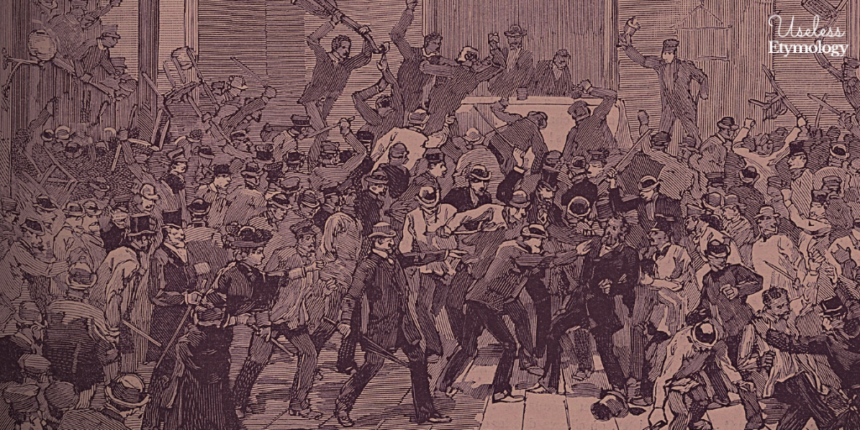Note: This is an excerpt from my forthcoming book Words from Hell: Unearthing the darkest secrets of English etymology (Chambers, 2023).
Want to know something outrageous?
The word “outrage” isn’t etymologically related to the words “out” or “rage.”
It has completely different roots.
It technically does not even contain the words “out” or “rage.”
In fact, it’s not even originally a compound word.
What happened was this:
“Outrage” derives from the Latin word ultraticum, which meant “excessive.” The root is ultra, which in Latin means “beyond” or “extremely,” just like it does in English. Ultra shares a Proto-Indo-European root with the English word “other,” but not with the word “out.”
When the Latin word ultraticum entered Old French, it became oltrage, and then evolved into outrage.
So this word isn’t “out” plus “rage,” it’s the French outre, plus the noun-forming ending -age. That ending is in a lot of other Latin/French-derived nouns like “postage” and “coverage.”
So instead of meaning something that makes you rage, the word “outrage” literally means “ultra-ness” or “the state of being excessive”—something that goes beyond what is normal. And this word in Old French was used to describe, not necessarily things that inspire rage, but anything that was outside the bounds of normal or accepted behavior, like minor criminal activity, or even just acting strange or having a bad attitude.
Of course, if you see the word as an English speaker, it looks and sounds like “out-rage,” or something that makes you outwardly express rage.
But you’ll notice that sometimes when people call something “outrageous” or “an outrage,” the French and Latin sense still emerges.
For example, when someone is wearing an “outrageous” outfit, it’s not one that makes you rage. It’s one that’s wild and colorful, outside the norm of everyday fashion.
And even when someone says, “This is an outrage!” They usually mean that they are indignant at the situation, but not necessarily to the extent that they want to smash up the place—more that they are inspired to make a very impassioned speech.
Read more in Words from Hell.






